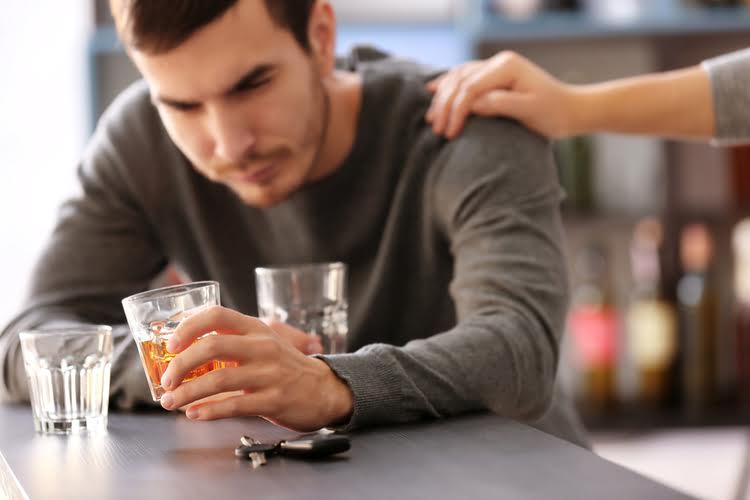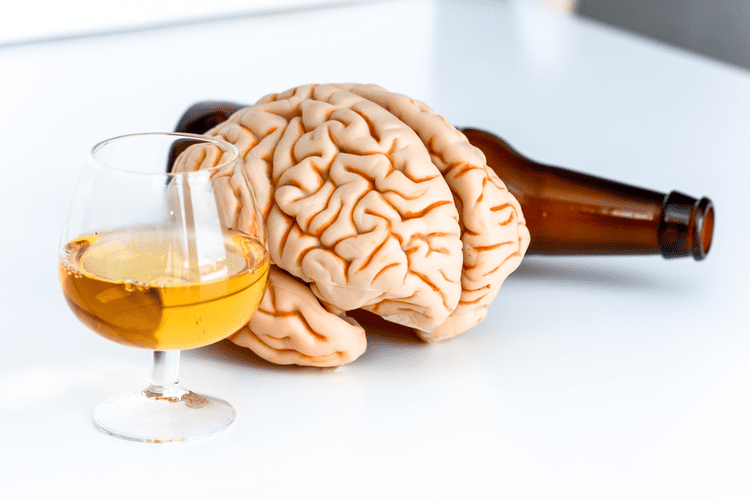Moderate drinking is defined as 14 or fewer drinks per week for men, and seven or fewer drinks per week for women. Regularly drinking more than the UK Chief Medical Officers’ (CMOs) low risk drinking guidelines (no more than 14 units a week, with several drink-free days) harms your liver. One of the signs of severe alcohol-related liver disease is jaundice – a yellowing of the skin and of the whites of the eyes. A reasonable place for alcohol to appear is lower on the ingredients list. “If it is lower in the list, past sixth, it may not be concentrated enough to deplete your skin’s barrier,” says Frieling.
It exacerbates some skin conditions.
- However, for skin conditions related to AUD, liver disease, or excessive alcohol consumption, the best preventive measure is to stop drinking alcohol.
- This makes it difficult to determine how effective collagen supplements truly are and if they are worth their often hefty price.
- This is because of a deficient enzyme that is involved in processing alcohol.
- In addition, dehydration could be one of the reasons your head is pounding after one too many cocktails.
However, these conditions can also develop in people who don’t drink at all (5). Alcohol can have a variety of effects on our appearance, from the way Top 5 Advantages of Staying in a Sober Living House your skin and eyes look, to your weight and body odour. Your body breaks alcohol down into a chemical called acetaldehyde, which damages your DNA.
Sexual and reproductive health
These effects are temporary, and a person can notice them the day after a night of drinking, whether or not they have AUD. Oral collagen supplements in the form of pills, powders, and certain foods are believed to be more effectively absorbed by the body and have skyrocketed in popularity among consumers. They may be sold as collagen peptides or hydrolyzed collagen, which are broken down forms of collagen that are more easily absorbed. Collagen supplements contain amino acids, the building blocks of protein, and some may also contain additional nutrients related to healthy skin and hair like vitamin C, biotin, or zinc.

Alcohol’s Effects on the Body

‘Eating anti-inflammatory foods such as chickpeas and blueberries can improve inflammation within the skin,’ says Dr Murad. Chowing down on veggies packs a vitamin punch, but because your skin is the last organ to get the nutrients it needs from the bloodstream, applying vitamins topically is also a good option. It also boosts your immune system, which has taken an alcohol-based hit. It’s the oldest trick in the book and probably the most effective one, too.

So if you wake up feeling or looking more bloated than usual, don’t be hard on yourself—it’s a direct result of alcohol consumption and it won’t last forever. Alcohol affects your body’s natural production of melatonin3 and can cause or ramp up symptoms of sleep apnea4, such as snoring. Not to mention, you may wake up early post-drinking, even if you went to bed late, thanks to the imbalance https://thetennesseedigest.com/top-5-advantages-of-staying-in-a-sober-living-house/ in blood sugar. High intake of alcohol is a risk factor for new onset of psoriasis. The distribution of psoriasis has been observed to be particularly prominent on the fingers and hands of heavy drinkers. People who have psoriasis and drink more than 80g of alcohol per week have been found to have more severe treatment-resistant psoriasis, including erythrodermic psoriasis.
- To put it simply, alcohol creates a double-whammy effect when it comes to oxidative stress.
- Fine lines and pores are less visible, and your skin appears plumper and healthier.
- Some people have raised concerns that because alcohol enhances the penetration of other ingredients, skin may be more likely to absorb potentially toxic or harmful contaminants in a product, per research.
- Changes to your immune system don’t just put you at risk for chronic health issues.
- No matter how fun alcohol may be, it can be bad for your health, especially if you over-indulge.
- It’s rare, but the palms of your hands — and maybe the soles of your feet — might turn red for no reason.
What Does Alcohol Do to Your Body? 9 Ways Alcohol Affects Your Health
- Binge drinking—consuming four drinks for women or five for men in a two-hour span—is even more damaging than when the same number is spread out over the week.
- Six months to 1 year after quitting drinking, your skin will have fully recovered.
- A person who is worried about the amount of alcohol they consume, or has trouble managing their alcohol intake, can contact a doctor or local support group to help with treatment.
- Redness is one of the most obvious facial signs of excessive alcohol intake, but it can have a few different causes.